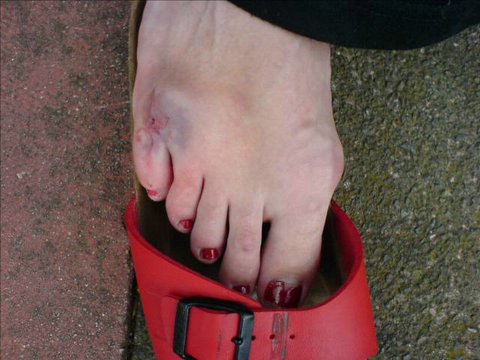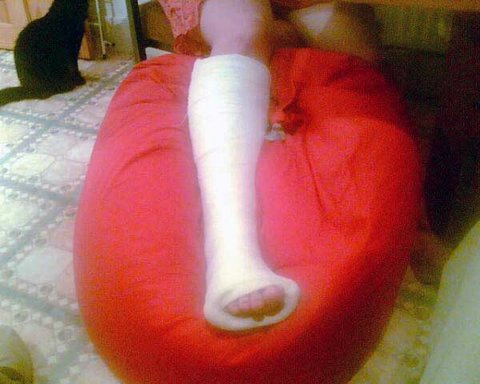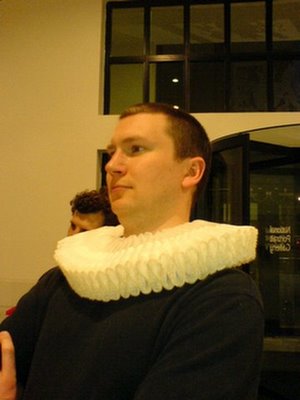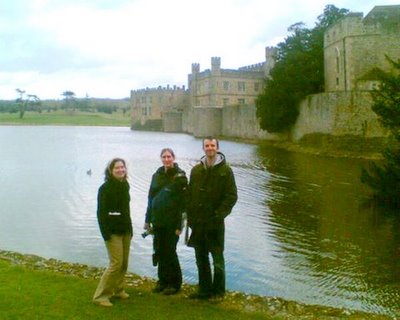“In any month in the USA, more people are killed than on 9/11 … In any year in Israel, more than 10 times more deaths will occur from road traffic accidents than in the worst year of suicide bombings during this recent intifada—a terrible statistic. With this sort of record, it might be argued that a sign of development in a country is its number of road traffic accidents.”
Baroness Tonge, Official Report, House of Lords, 15 May 2006, Col. 92.
Some advice I had when learning to drive, a frightening number of years ago: everyone else is a homicidal maniac who wants you to crash into them.That’s not just other drivers. When passing parked cars, look out for the dimwit opening his door into you. Expect horses and bicycles to weave out into the road, even when they know you’re overtaking. And pedestrians will leap out from any cover at all, just for the look on your face.
It’s this paranoia that makes driving hard work, but also keeps you safe. It’s got nothing to do with how coolly you drive at 120 mph. It’s about how elegantly you cope when things all go wrong.
It’s not how brilliant a driver you are, but how horrifying everyone else is.
This is actually the real skill in anything. A chef is not just someone who can follow a recipe, it’s someone who can manage a kitchen and deal with stuff going whoops. No, that doesn’t mean just swearing at skivvies.
The trick, even when the cooker’s blown up, the food’s been trodden into the floor and you’ve forgotten to stock up on cornflower, is for the dining person not even to be aware that anything’s other than peachy.
The skilful surgeon can sort out sudden gushing. The manager can deal with deadlines being brought forward. The passengers of a skilful driver won’t even notice the changing of gears.
It’s about care and planning and experience. It’s about being in control whatever’s hurled your way.
Tradespersons will often give you some sense of authority by offering options to choose from. “I can use sticky tape for free,” a plumber might tell you, “but it’ll leak poo again soon enough. I can unblock the pipe for about fifty quid, but it’s still gonna stink in the summer. Or, for the cost of a van and deposit, you could move house to somewhere not built above the intercept sewer.”
This specialist knowledge comes from actually doing the job. A doctor will know more about your sore throat than you could look up in five minutes’ googling. A chef will know the best way to cut asparagus (cutting with the back end of the knife, keeping the point always on the chopping board and acting like a pivot).
I know more about grammar from four years of freelancing than from four years of reading English at universities. Writing is a similar skill. It’s not just that you can plonk words down on a page (no, really). You have to be selfless enough to heed editorial criticism and self-confident enough to know when it’s wrong. You have to be in control of your stuff.
You don’t go to a plumber or dentist because they’ll tell you what you want to hear, nor because they look good in photos. You want someone with the skill, integrity, experience and ability who can sort the shit out.
Politics, though, is doing its own thing. Politics, though, is Not The Same. You should vote not for the prettiest or funniest option, but for the one you trust to best make the difficult decisions.
Yet an unfortunate side effect of the democratic process is that it can make voting a popularity contest. Which means even the biggest politicians aren’t actually in control.
Professional politicians are keen not to say anything unpopular. So they’re keen on environmental issues so long as they keep their posh cars. Anyway, when we don’t keep buying new cars, lots of people lose their jobs.
They’re keen on renewable energies, but nuclear power stations are less costly to invest in. They like tough new laws on terror, but nuclear power stations are also an obvious target.
These are difficult, complex issues which can’t be summed up in a soundbite. Any decision has far-reaching consequences for all kinds of different groups.
One thing politicians like to do is show “strength”. Someone’s bothering our islands of sheep? We’ll have won a war with them in a fortnight. We’ve lost thousands of people we should have deported? Well now we’ll deport every one of them, even if that means sending them to their deaths.
A chicken’s got the sniffles in Norfolk? Exterminate all poultry everywhere!
It’s like smacking a leaky pipe or a sore tooth with a mallet, just to be seen to be doing something.
Strength is not the same as control, no matter what dictators tell you. Being strong on crime or refugees isn’t a solution, it’s a reaction. It’s attacking the symptoms not the cause. The system of releasing foreign prisoners needs fixing, not just to be ignored.
When you’re in the driving seat you want to put your foot down. It’s a thrill to wield that power, and it’s what they do in movies.
But giving into that temptation is not good driving. It’s not merely reckless, it kills.


















